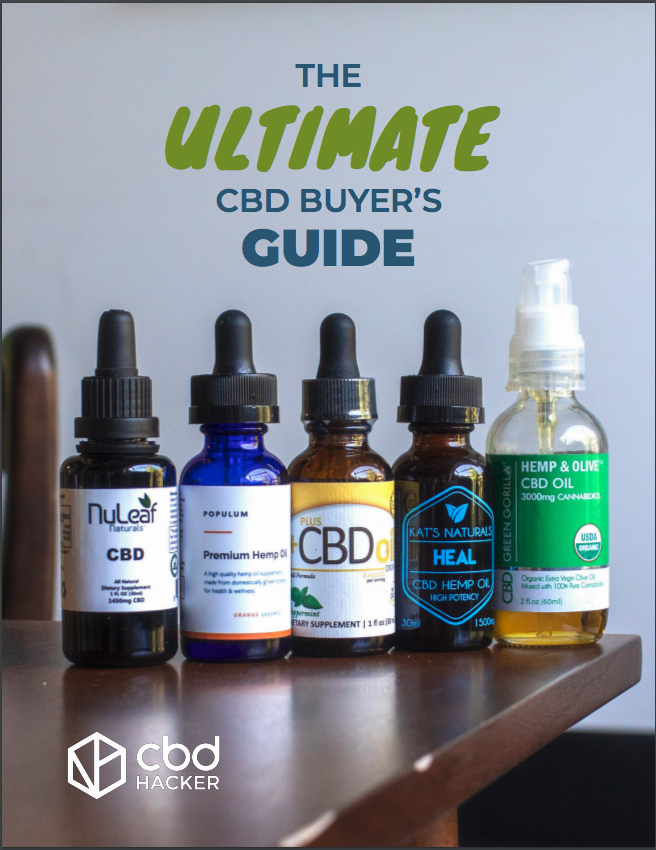As the demographic for CBD users continues to expand, a basic question still remains. Does CBD oil show up on drug tests?
To some, the answer is an obvious “no.” That’s because typical drug tests don’t test for CBD.
But others, even long-time users, say “yes,” CBD could make you fail a drug test. And these contradictory answers aren’t very helpful to newcomers and casual users who feel unsure about CBD.
For many consumers, the possibility of failing a drug test is not a minor concern. It’s important to understand how CBD interacts with the body and to be aware of potential risks.
Bottom line: CBD has many beneficial health properties, but there is still much to learn about it. We cannot definitively say that CBD will not show up on a drug test.
But compared to consuming high-THC cannabis strains, you are much less likely to fail a drug test from typical CBD use. Keep reading to learn why common delivery methods — like adding CBD oil to your coffee or taking CBD capsules — may be less risky than other forms of cannabis consumption.
How Do Drug Tests Work?
Drug testing facilities administer tests in several different ways, but we’ll focus on urinalysis. That’s the typical method of collecting urine in a cup.
When employers have someone submit a sample for urinalysis, the drug testing company screens for several substances. To determine whether the person has consumed cannabis, they look for THC metabolites. These substances are the metabolized forms of THC, the main psychoactive compound in cannabis.
In a standard urinalysis drug test, the concentration of THC metabolites needs to be at least 50 nanograms (ng) per milliliter (mL) to register a positive result. According to some research, 50 ng per mL is an average, consistent concentration for someone who regularly smokes marijuana.
Testing for THC
Since drug tests don’t screen for CBD or its metabolites, most people might assume that taking CBD products could never cause someone to test positive for cannabis. However, it’s not that simple. In the US, full-spectrum CBD products may contain up to 0.3 percent THC, and not all CBD isolate products are 100 percent CBD.
But even at 0.3 percent THC, could that be enough to show up on a drug test? Looking at the numbers, it would seem not.
Let’s do the math
By smoking a single joint, which has been estimated to contain 0.3 grams of cannabis, a person might ingest around 12-15 mg of THC. Those numbers can differ widely depending on the strain and many other factors, but that baseline measurement is much more THC than someone could absorb from reasonable doses of CBD oil.
Not all full-spectrum CBD oils have the same exact amount of THC, but it can be helpful to look at one as an example. This lab analysis of one bottle of full-spectrum CBD oil from CBDistillery shows that with a THC percentage of .17 percent (well below the legal limit) the product contains 1.6 mg of THC per mL of oil.
So, in its 30mL container, this entire bottle contains about 48mg of THC. That’s a little more than three joints’ worth of THC in the whole bottle.
One droppers’ worth of CBD oil is about 1mL. That isn’t necessarily the standard dose, because there is no standard dose, but 1mL is closer to an average dose than an entire 30mL bottle.
So ingesting 1.6mg of THC in one dose of full-spectrum CBD oil, compared to ingesting 15mg of THC in one joint, suggests that you would have to take an extremely large amount of oil to have enough THC in your system to to fail a drug test.
However, that doesn’t mean it’s impossible.
What do the experts say?
Nick Des Lauriers is the business development manager at ProVerde Laboratories, a company that analyzes CBD and hemp products. He said there’s not “a high likelihood of failing a drug test if you consume a full-spectrum product, but it would depend on the amount of product you’re consuming and the levels of THC within the product.”
It also depends on how frequently someone is taking full-spectrum CBD.
“As non-toxicologists, we don’t know the precise levels that would cause someone to fail or pass a drug test,” Des Lauriers said. “However, it stands to reason that the higher the concentration of THC, and the longer the period of time during which someone is consuming products containing THC, increases their chances of failing a drug test.”
Claims About CBD and Drug Tests
Online, he wrote about how he had not been smoking marijuana during that time. Rather, he was only taking a full-spectrum CBD product. After failing the test he lost his job.
He described the experience as “humiliating,” and said he was “positive it was the oil” that caused him to fail the test. However, the incident hasn’t stopped him from using CBD. “I still use full-spectrum due to its amazing benefits,” he said.
Other CBD consumers who say they’ve failed drug tests have put the blame on CBD companies. Essentially, they claim some companies use improper extraction processes. As a result, some brands may leave more THC in the oil than they indicate on the product’s label.
Des Lauriers said these claims are not entirely off base. “There is a lot of bogus isolate and other products on the market,” he said. “Without a product being tested, it’s hard to know if there are traces of THC in it or not.”
However, Des Lauriers also acknowledged that these consumer claims can be unreliable themselves. “There are many people who consume THC products and blame a failed drug test on a CBD product,” he said.
Unsure of the THC amount in a CBD product? Des Lauriers recommends getting in touch with the CBD companies. “I would suggest they ask the supplier for a recent COA [Certificate of Analysis] on the product. If the producer is unwilling to provide test results or has an outdated result, that’s a red flag consumers should look out for.”
Converting CBD to THC?
Chris Hudalla, the chief science officer at ProVerde, explained the science further.
“CBD, when exposed to acidic conditions, as in stomach acid, can isomerize to produce isomers of THC, which can then be metabolized, creating the THC metabolites that are the target of most drug screening,” Hudalla said. “Everyone metabolizes compounds differently, so some users might be more prone to this than others. But we have seen enough cases of this where I believe it is a real phenomena.”
What’s the Takeaway?
In the end, we cannot say that CBD products will definitely not interfere with drug tests.
Everyone’s bodies process cannabis differently. So, there’s a possibility that the legal levels of THC in full-spectrum CBD could show up on a drug test. And there’s also a possibility that taking enough CBD isolate could result in THC metabolites forming in the body. That might be enough to trigger a false positive on a drug test.
However, both of these possibilities are small. The most important precaution you can take is to learn as much about any CBD products you use. That way, you know exactly what’s in them.





